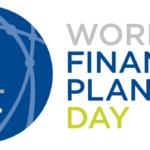Many of you will be worried about how to manage your loan and credit card repayments during the lockdown, especially if your employment, or your partners employment have been impacted.
If you already have a Financial Adviser, they should be very familiar with your financial situation. Give them a call to go over your current financial challenges and discuss your personalized options.
Are you worried about missing your loan or credit card payments?
It is important that you get in touch with your Bank or lender if you are worried that you may miss a payment or can’t make a payment in your schedule. The sudden changes to your personal financial situation related to COVID-19 mean that many people have reduced income, are waiting for a response from their employer regarding their wage or are waiting for confirmation of the government subsidy.
You may not have savings to rely on while you wait for your income position to improve. If you feel you are suffering from Financial Hardship you have options to seek help for this if you qualify. Your Bank or lender will be able to speak to you about this to discuss your options.
How is Financial Hardship defined?
The Credit Contracts and Consumer Finance Act 2003 defined Financial Hardship as being unable to make some or all of your loan payments due to illness, injury, loss of employment, end of relationship, or some other reasonable cause, you may in Financial Hardship and be eligible to apply for assistance from your lender. Each case is considered on its own merits.
Your lender should ask you to complete an application form and provide information such as the reasonable cause (for example, illness, injury, loss of employment, or the end of a relationship) for your inability to meet the your loan obligations under your consumer credit contract.
What kind of help could I receive?
Depending on your circumstances and the type of accounts, your loans, and how you qualify against Bank policy, you may be able to:
- defer or pause your Loan repayments for up to six months
- defer principal payment and only pay interest-only payments on your Loan
- qualify for a repayment deferment on your Personal Loan or Credit Card accounts for up to three months
- consolidate your debts to make repayments more affordable
- reduce your repayments which might extend the term of your loan.
- emergency overdrafts
- waiver of fees
- early access to term deposits
Things to remember:
A loan repayment holiday does not mean that these payments are waived. Even though you may not be making payment during the “holiday”, the loan or credit card interest will continue to apply during this period and will form part of the final debt to be repaid. This means there may be an increase in your payments, or your loan term may be extended after this period.
Why is it so important to talk to your Bank or Lender before you miss your payments?
Missing one of your loan payments will still constitute a default under your loan agreement. If you expect to miss a payment, contact your lender immediately and before you are in arrears so that they can assist you.
In addition, your credit score can be negatively impacted by missed payments, and this can cause problems in the future if you are looking for further borrowing as lenders look at your past repayment behavior to see if you have satisfactory repayment behavior.
Missed payments are noted on your credit history.
What is the best way to contact my Bank or Lender?
There is considerable demand from consumers trying to contact Banks and Finance companies at present, so do your best to be patient. Many Bank Branches are closed, or open with limited hours and services. Contact centres may be overloaded with calls. You can try communicating via:
- internet banking message services
- mobile banking applications
- chat bots (if available)
- Lender websites dedicated Covid19 or Financial Hardship pages with information and forms
The important first step is to make contact as soon as you practically can to seek help.
What type of Financial Services are available as essential services?
The following Financial Services are considered as essential services:
- financial services infrastructure including banking services
- stock exchange
- broking services
- payment and settlement systems
- funds management including KiwiSaver
- insurance services
- financial advice
- support services such as administrators, supervisors and custodians.
Do you regularly find it a struggle to manage your money?
There are a range of services and tools available to help you manage your money and build your own financial capability. FinCap offers support to all budgeting and financial capability services in New Zealand. They provide budgeting services with all the resources they need to help clients safely and confidentially.
The Trust is supported by the Ministry of Social Development as part of their Building Financial Capability initiative. https://www.fincap.org.nz/contact/
MoneyTalks is a budgeting and financial capability helpline operated by FinCap.
Their Financial Mentors offer free, confidential advice by phone, text, email and live chat.
Phone: 0800 345 123
Text: 4029
Email: help@moneytalks.co.nz
Live chat: www.moneytalks.co.nz
Available 8am – 8pm Weekdays, 10am – 2pm Saturday.
You can also check out the budgeting tools available on https://sorted.org.nz/
Financial Advice New Zealand is here to help
In these uncertain and challenging times, good quality financial advice is more important than ever. If you want to talk to a quality financial adviser, reach out to a Financial Advice NZ member today. https://financialadvice.nz/find-an-adviser/








